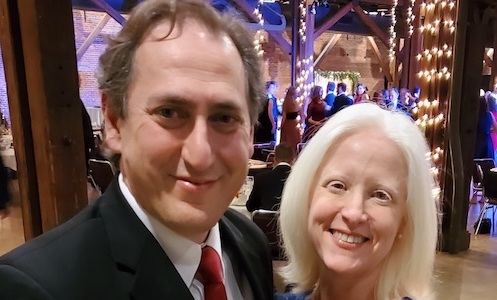
“Are You Real Missionaries?”
“Come, follow me,” Jesus said, “and I will send you out to fish for people.” -Jesus in Matthew 4:19
My husband and I taught English in a post-Soviet European college. Every morning, we greeted our watchful neighbors as we left our apartment and boarded public transportation. We chatted with colleagues in the college office before class, asked for help with logistics, joined them for lunch, and attended faculty meetings. We taught hundreds of students each day, many of whom gathered around our desks before and after class to practice their English skills, to ask questions, and to get to know us. We worked late each evening in a bagel shop to plan lessons and grade assignments.
As often as possible, we connected socially with students and colleagues. They readily accepted our invitations; in fact, we found that they desired more interaction with us than we had the capacity to give. We collaborated with teammates in our organization to offer disciple-making activities, like conversation clubs and a youth baseball league (for which churches we connected with in the U.S. supplied bats, baseballs, and gloves).
Sometimes those that prayed for us would ask if we were “real missionaries.” That was an interesting question at the core of this marketplace work. We did worry that we didn’t devote more time to discipleship or offer more deliberate Bible study opportunities. We recognized that our professional duties–which loudly spoke in witness to our employers–kept us very busy. We earned local salaries, depended less on donor support, and taught less from the Bible than typical missionaries.
However, when we worshipped with more typical missionaries on Sundays, we regularly heard them lament the lack of response and participation in certain outreach events. These appointed missionaries were prepared and committed to offering well-organized, intentional avenues for locals to learn about Jesus–and with far better programming than we could probably piece together around our teaching duties. And we had some relational connections and credibility with people that could work hand in hand with what they were doing so we could help one another. We may not have been appointed missionaries, but we wanted to think like missionaries and work together with them as we worked in the marketplace.
Before long, it became clear that we were both “real” missionaries but that we were doing different work. We needed one another. Like a well-crafted net without the gaps of time or access, we could be so much more effective together in “fishing for people.”
